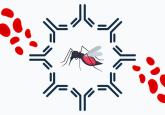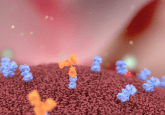Towards a more patient-centric assessment of immunogenicity for low-risk biologics in immuno-oncology clinical trials

Hassanein M, Wang Y, Yin D & Baltrukonis D | Bioanalysis, 13(17), 1309 - 1312, (2021) Keywords: • biotherapeutic • clinical impact • immunogenicity • immunotherapies • incidence of antidrug antibodies • IO • monoclonal antibodies • neutralizing antibodies • reporting Immune check point inhibitors & their clinical immunogenicity profile; a decade in the making The approval of ipilimumab, the first cancer immunotherapy for patients with advanced melanoma in 2011 ushered a new dawn for cancer treatment and provided additional therapeutic option for millions of patients around the world [1,2]. A decade later, cancer immunotherapies, also referred to as immuno-oncology...






